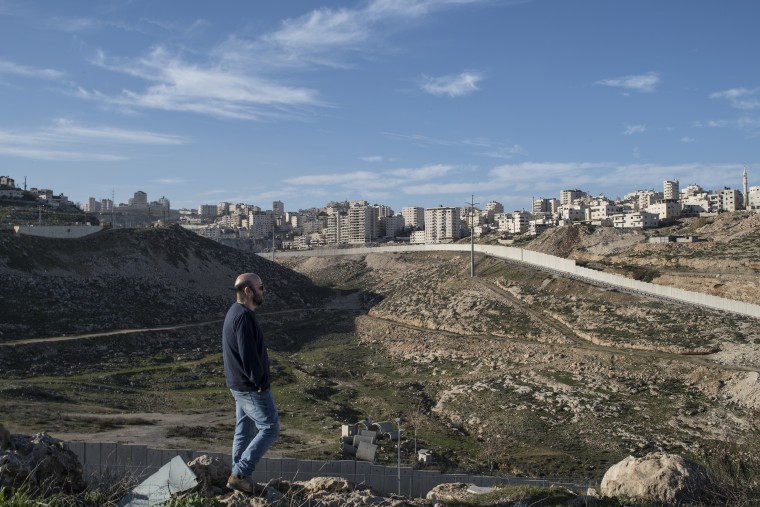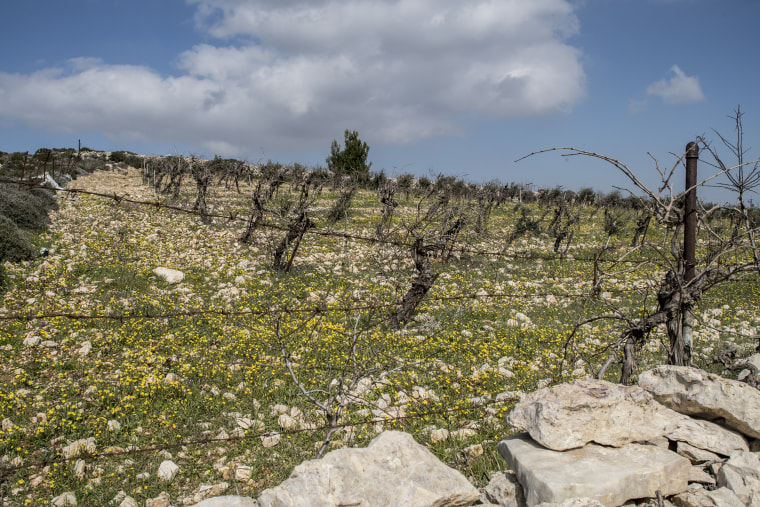Casting back over recent months, I want to share with you some good reading choices.
A view from Australia - "George Browning: Is Christian Zionism contributing to the Israel Palestine Impasse?" Browning is the retired Anglican Bishop of Canberra and Goulburn. This blog post goes beyond the definitions of Christian Zionism with which many of us are already familiar to provide analysis of President Trump and US policy.
Here's a taste: "Just as Christian Zionism’s concern for Israel resides in a very different priority; similarly, US Middle Eastern politics is driven not by events in the Middle East, but by US domestic politics and the base from which Donald Trump relies on for support – the Evangelical Christian right. We are confronted with utter hypocrisy and disdain for truth on every corner. It is very unlikely that Donald Trump believes the nonsense of the Christian Zionist position, but being their champion keeps him in the White House." Check it out at the link here.
---
An incredible journey - F. Brinley Bruton, senior editor at NBC News Digital’s London bureau, contributed the fascinating "One Israeli's journey from ultra-Orthodox settler to peace activist." Bruton examines the transformation of Shabtay Bendet, a co-founder of Rehelim, one of the West Bank’s first illegal outposts. He became a journalist covering the West Bank and now serves as the head of Peace Now's Settlement Watch division.

Photo: Tanya Habjouqa/NOOR/for NBC News
Bruton's story also profiles Palestinian Ali Musa. "Bendet and Peace Now work with the Musas to help them reclaim land that is now the Jewish outpost of Netiv HaAvot, helping navigate what the group describes as a dizzyingly complicated process. Over the years, Musa says he has seen fruit trees wither from neglect because his family could not reach the land to care for them. He’s also watched settlers' trailers multiply and morph into buildings."

Photo: Tanya Habjouqa/NOOR/for NBC News
Here's a bit more: "Bendet surveys Givat Eitam, a Jewish outpost south of Bethlehem that is a handful of buses, trailers and long tent sitting on a bare plot of earth. `The view is so beautiful but when you start to understand what is going on here, you understand it is not beautiful at all,' Bendet says, adding that the development of the location would likely strike a blow to a contiguous and independent Palestinian state by cutting off communities from each other. `All the Palestinians see the dream of building a state going away,' he adds." Find this fascinating article at the link here.
---
A story from the ecumenical accompaniers - A group of accompaniers (EAs) from the World Council of Churches (WCC) shared Shabbat dinner with the Kol HaNeshama congregation in Jerusalem: Shabbat dinner ‘helps humanize two sides of the story.’

“The dinner was really interesting,” said (an) accompanier, from Argentina. Seeing how a large part of the EA's time is spent in placements across the West Bank, she reflected, “it is a big change, and a hard change, to try to understand and focus on an Israeli point of view. I had to sit and really listen, and keep an open mind, and it wasn’t easy. But also, I think it helps you to understand much more. We are a programme to accompany both sides, the Israeli and the Palestinian people.” There are lots of photos with this article. Check it out at this link.
---
We Are Not Numbers is a website where Palestinian youth tell their stories "the human stories behind the numbers in the news." Mohammed Alhammami, a Gaza resident, wrote the essay, After 68 years of Nakba, is coexistence still possible? He cites "...glimpses of the `good old days' that the elderly remember so vividly, of home, harmony and coexistence; the days before political and ideological strife broke those bonds and drew dividing lines with people’s blood."
And he shares the story of "a Palestinian student from Jerusalem (who) gave a presentation about the discrimination Palestinians face there, how Israeli laws privileged Jews over non-Jews, making Palestinian life unbearable. Surprisingly, this came as a shock to the Israeli students; they had been so disconnected from the occupation that they did not understand its reality and consequences. `This angered me,' (she) says. `How could they not know what they do to us? How brainwashed could they be?' But the experience also gave her a glimmer of hope. `After a series of presentations and debates, one zealot Israeli changed sides, stating that the Israeli army does not represent her anymore. Another came to the realization that the Jewish dream came at the expense of the Palestinians. Maybe if more Israelis know, things can change."
Alhammami returns to the question: "Can Jews and Palestinians coexist today in historic Palestine? In today's reality, under the status quo, absolutely not. Peaceful coexistence is impossible in the presence of military occupation, discrimination, ethnic cleansing and apartheid. The only way to bring about coexistence is to resolve the root causes of the conflict: the occupation and refugee crisis." Read the entire essay and see some amazing art by Ismail Shamout at the blog. And you can learn more about We Are Not Numbers at the website.
---
I hope you can dig into some of this outstanding reading material. There's a lot to read; it comes to my inbox every day. I think these selections are choice.
--
To
receive regular bulletins from Ann Hafften, sign up at my blog - A Texas
Lutheran's Voice for Peace: http://www.voicesforpeace.blogspot.com/